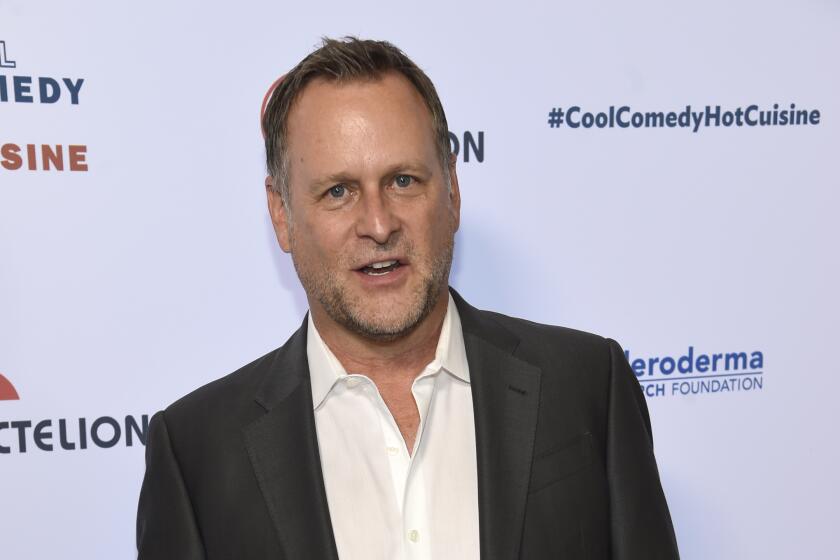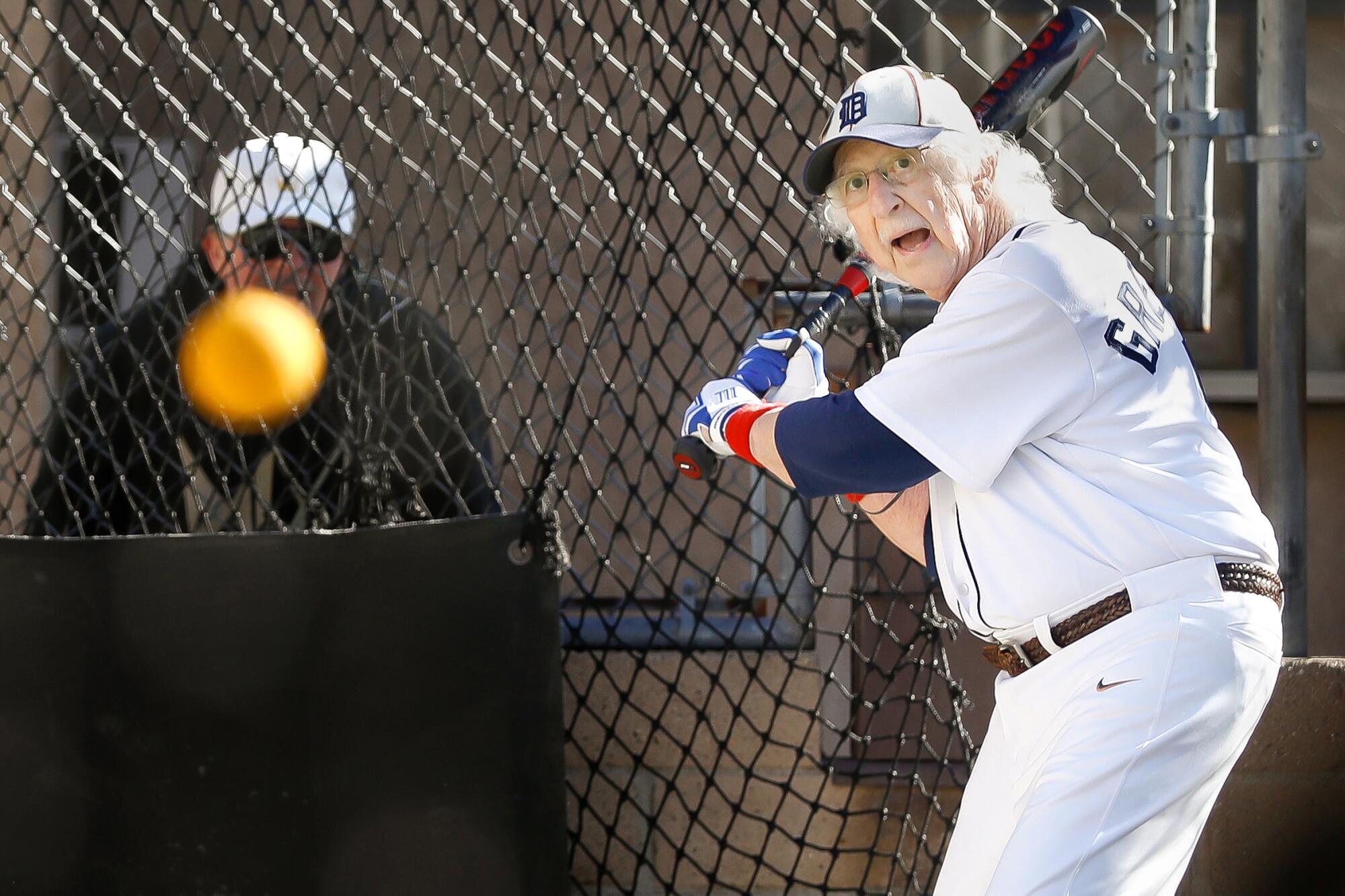
It was a Friday morning, and the sun was shining. To 88-year-old Benny Wasserman, that meant only one thing.
Time to grab his baseball bat, button up his Detroit Tigers uniform, and head to the Home Run Park batting cages in Anaheim.
There, Wasserman could give himself a break and step into the cage with the 40-mph pitches, or maybe the one with 60-mph heat. But this is no rookie we’re talking about. Benny Baseball always goes up against the top gun, which launches 90-mph missiles. It’s like facing Clayton Kershaw in the playoffs.
“When I hit a home run,” says Wasserman, “it makes my day.”
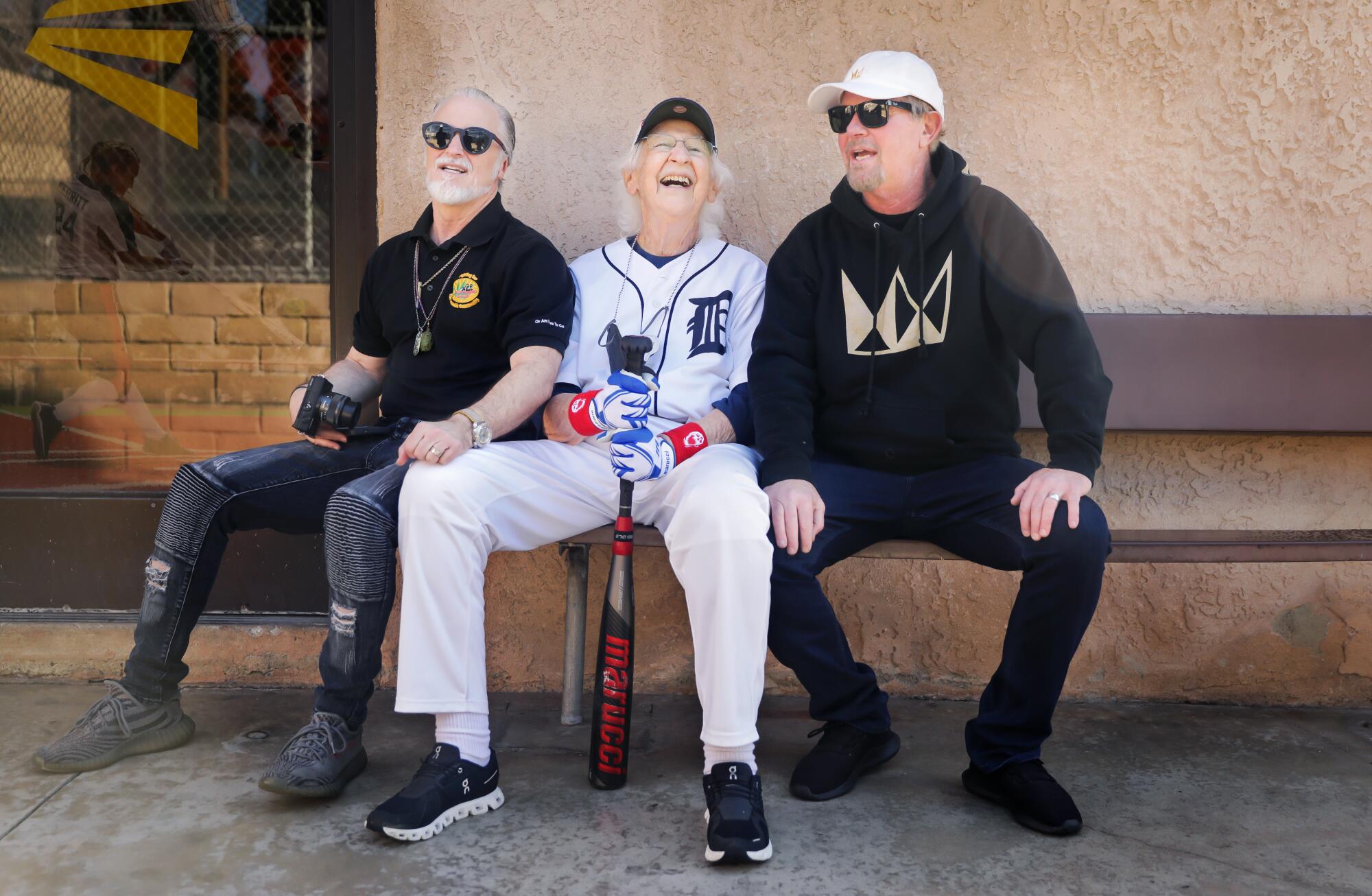
This has been going on for 10 years, every Friday unless it rains. Prostate cancer has not stopped Wasserman. Pulmonary fibrosis has not stopped him. Nothing, it seems, can take the bat out of his hands.
“He loves it,” said Fern, Wasserman’s wife of 65 years.
Many years ago, as a lad in Michigan, Wasserman dreamed of becoming a major leaguer. Now he chases a different goal.
California is about to be hit by an aging population wave, and Steve Lopez is riding it. His column focuses on the blessings and burdens of advancing age — and how some folks are challenging the stigma associated with older adults.
“I’m calling it 90 at 90,” said Wasserman. When he hits the big 9-0, in April of next year, he wants to prove that he can still crush a screaming 90-mile-an-hour pitch.
There’s one more thing worth noting about Wasserman:
He worked in aerospace, as a technician and engineer, but a merger put him out of work at 58. That’s when a business associate of his middle son asked him a question that led to an unexpected second career: “Did anyone ever tell you that you look like Einstein?”
Wasserman said no, but his curiosity was piqued. Sure enough, with glasses, a mustache and his hair tossed as if he’d plugged his finger into a light socket, Wasserman was a dead ringer for Albert Einstein.
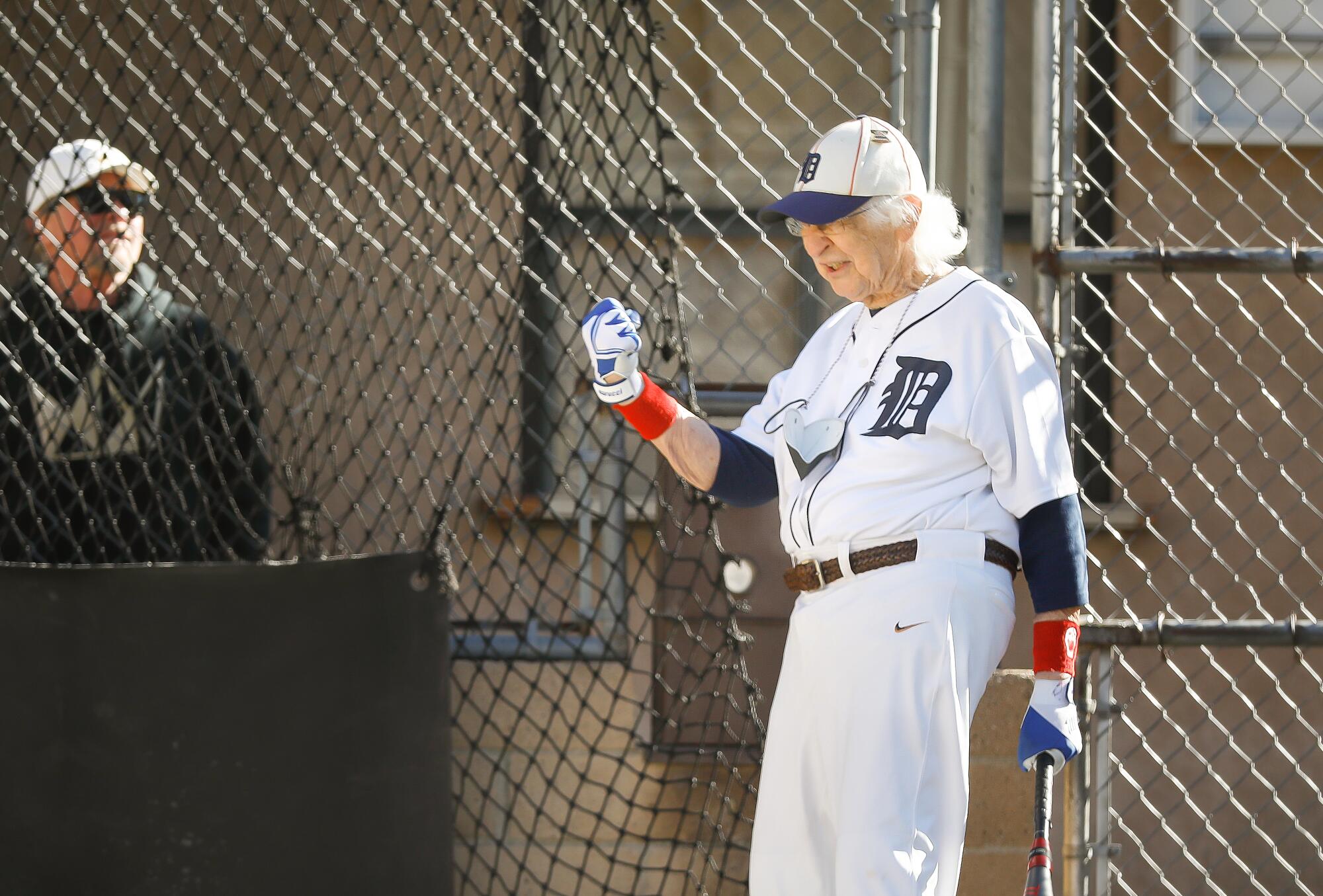
Two weeks later, he got a job as an impersonator, and he got a booking manager named Brian Mulligan, who lives in Pennsylvania and resembles another famous American.
“Brian is a Benjamin Franklin look-alike,” Fern said.
Wasserman traveled the country and the world for more than two decades, getting paid for resembling a genius. He did commercials, movies and television. “I was in ‘Leave It to Beaver’” (the 1997 movie), Wasserman told me.
But the theory of relativity never interested him as much as the game of inches. When he greeted me at his home in Cerritos, Wasserman — who still could pass for Einstein — was wearing a Hank Greenberg jersey. The Hall of Famer, who played both the infield and outfield, is one of his all-time favorite Tigers.
A man of many interests, Wasserman took me into his den and music studio, where he played the opening notes of “Malagueña” on his guitar. I asked who played the electric keyboard, but I should have known the answer. Wasserman stepped up to the keys and played, of course, “Take Me Out to the Ball Game.”
Speaking of, Wasserman takes in an occasional Angels game, but the nearest ballpark is much closer than that.
It’s in his backyard.
Wasserman has created a mini-stadium, with a white picket fence as the left field wall. The infield lawn is manicured, the baselines are chalked and the bases are the color of vanilla ice cream.
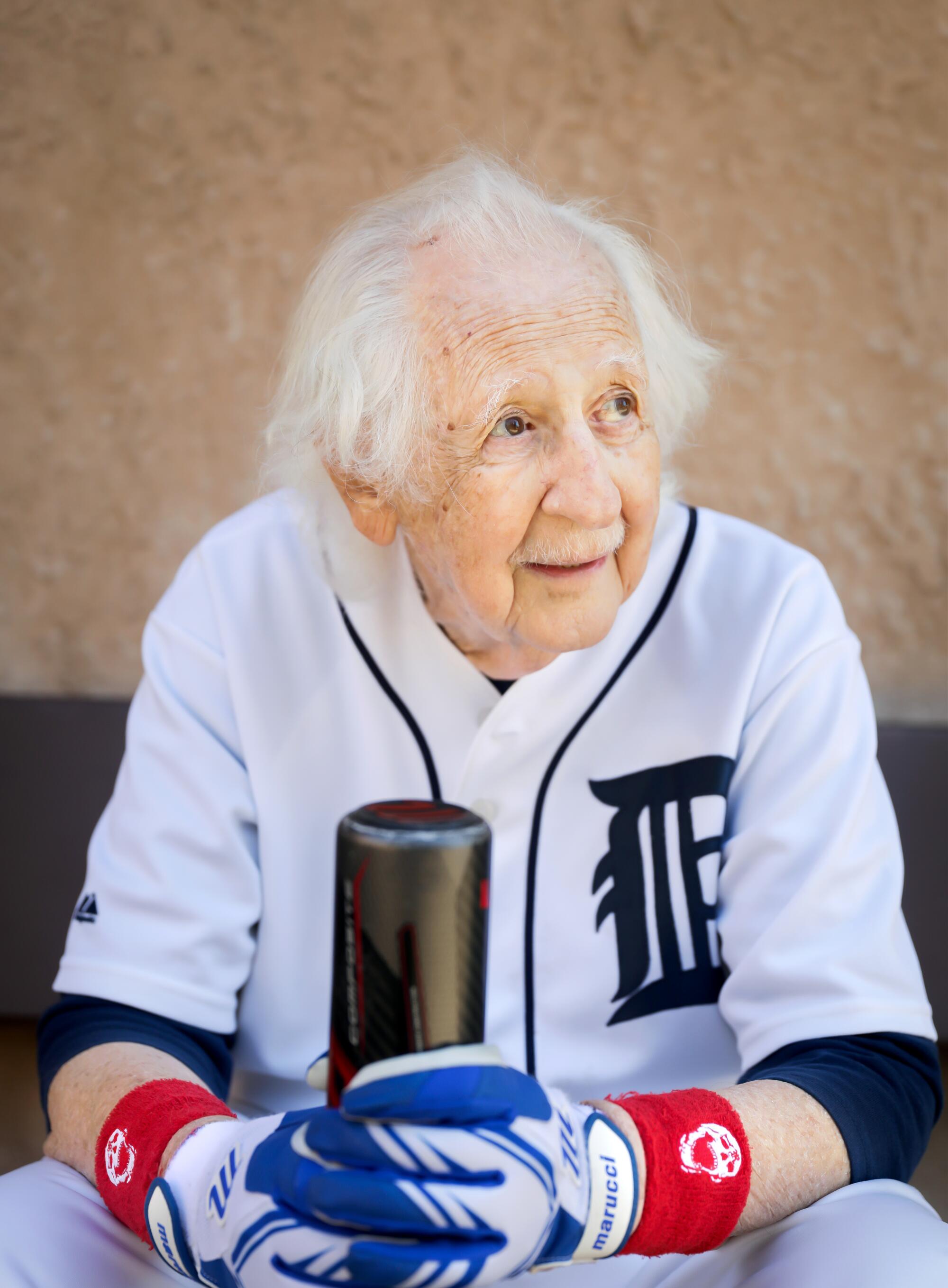
The backyard slugger fired up a Wiffle ball pitching machine and chopped away at one pitch after another in his field of dreams, a white-haired optimist perfecting the art of eternal childhood.
This wore him out a bit, so Wasserman slumped into a lounge chair to catch his breath. He told me the prostate cancer he’s been fighting for four years has spread, but he isn’t sweating it. “When they say it’s metastasized to the bones, it’s just a matter of time,” he said. “But life is a matter of time.”
Benny and Fern have three sons. Two are lawyers and one is a retired geriatric doctor.
“Prostate cancer is really complex in older men,” and not necessarily fatal, said Michael Wasserman, the M.D. He believes in the mind-body theory that healthy living and a sense of purpose — his father’s 90-at-90 plan, for instance — can stretch longevity.
“We still don’t understand it,” Dr. Wasserman said, “but there are so many ways a positive attitude affects our whole body and our immune system.”
That makes sense, but there was one unanswered question: Could Benny Wasserman really hit?
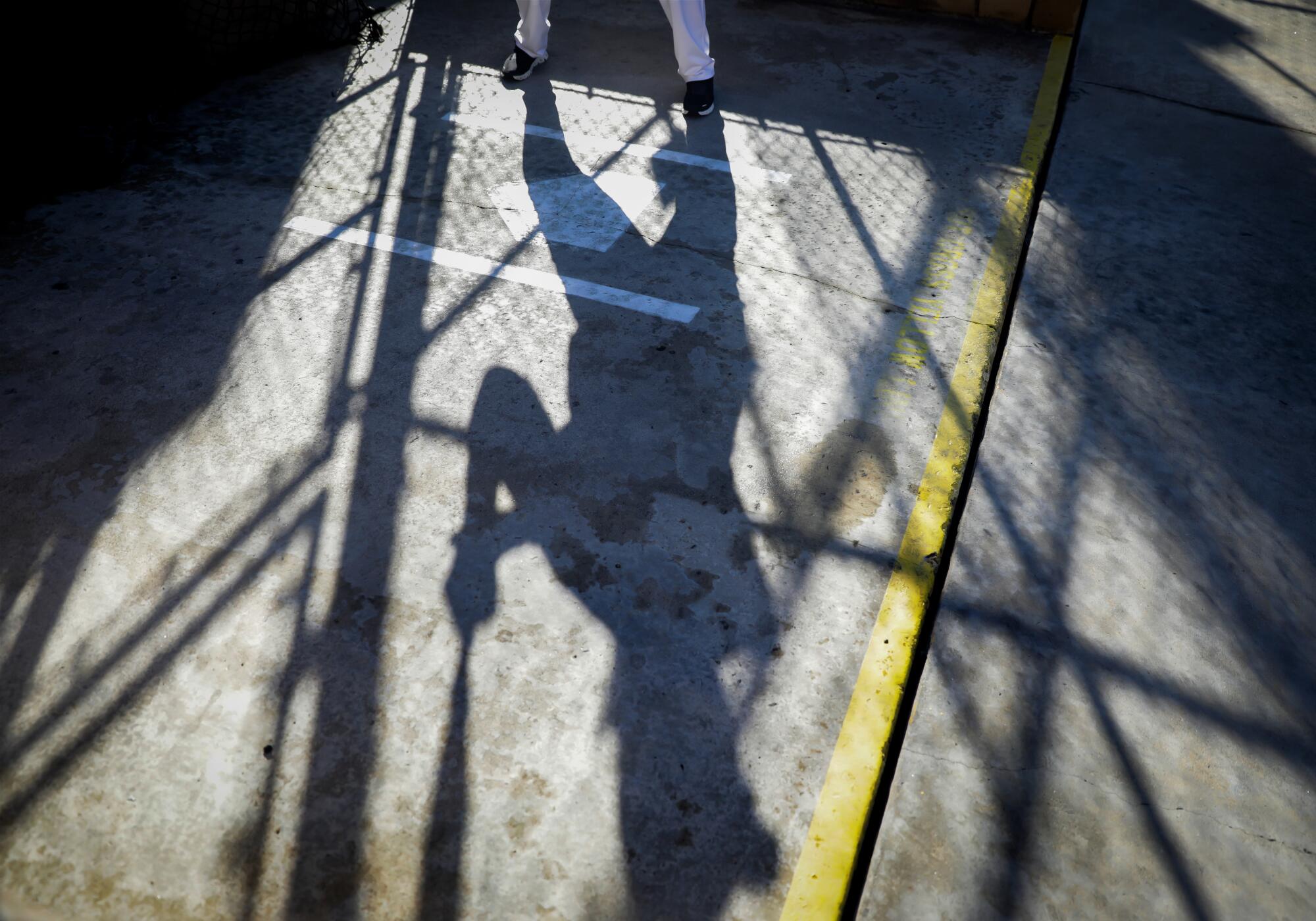
His youngest son, Marc, drove him to Home Run Park, which is situated roughly midway between Disneyland and Knott’s Berry Farm. The middle son, Craig, was waiting in the parking lot. The brothers often watch, and record, their father’s baseball exploits.
The batting cage staff told me no customer is anywhere near Wasserman’s age, and he goes there so often that they’ve stopped charging him.
Wasserman confessed he was a bit nervous about stepping up to the plate. He’d talked a good game about his hitting prowess, but would he wither under the pressure of high expectations and dishonor the memory of Hank Greenberg?
Not a chance.
Wasserman entered the cage and crouched in a comfortable right-handed stance. He wagged his aluminum bat and peered through his glasses, eyeing the arm of the pitching machine like a man gunning for a call-up to the majors.
Baseballs began whistling at him like meteors, but Wasserman never flinched. The machines don’t throw curveballs, but they’re erratic. One pitch up, another down, the next outside.
Wasserman tracked the offerings and grooved his swing, a compact flick of the wrists, whiffing only rarely. The real Einstein might have known something about the speed of light, gravity and the passage of time, but could he handle high heat and drive a baseball into the gap?
Wasserman began with a dribbler here and there until the timing clicked, and then he found solid contact. Thwack, thwack, thwack. A line drive, a double into right center, a rope up the middle.
And then a shot.
“Ohhhhh,” Wasserman shouted, thinking he’d belted a round-tripper, but the ball didn’t clear the beam that represents the top of the home run wall.
“Oh, yes!” Wasserman declared on another shot, but this one, as well, came up just short of glory.
And then behold.
Wasserman got a pitch in his zone and muscled a bomb to right.
“Go, go, go!” Wasserman shouted as the ball soared on wings and a prayer.
Home run!
It was the first of three. The second one rifled over the center field wall. The third — a rocket to left-center — would have landed in Downey if not for the net.
“We all love him,” said Kris Wysong, the batting cage manager, who told me that quite a few younger prospects could learn a thing or two from Benny Baseball. “He hits better than most of the customers do.”
Wasserman is right.
Life is a matter of time.
How you spend it — that’s the thing.
More to Read
Sign up for Essential California
The most important California stories and recommendations in your inbox every morning.
You may occasionally receive promotional content from the Los Angeles Times.






